Related Research Articles

Sunflower is the 16th studio album by the American rock band the Beach Boys, released on August 31, 1970 by Reprise Records, their first for the label. It received favorable reviews, but sold poorly, reaching number 151 on the US record charts during a four-week stay and becoming the lowest-charting Beach Boys album to that point. "Add Some Music to Your Day" was the only single that charted in the US, peaking at number 64. In the UK, the album peaked at number 29.
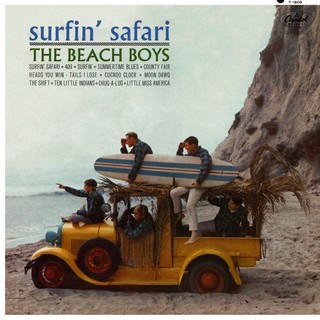
Surfin' Safari is the debut studio album by the American rock band the Beach Boys, released October 1, 1962 on Capitol Records. The official production credit went to Nick Venet, though it was Brian Wilson with his father Murry who contributed substantially to the album's production; Brian also wrote or co-wrote nine of its 12 tracks. The album reached number 32 in the US during a chart stay of 37 weeks.

Wild Honey is the thirteenth studio album by the American rock band the Beach Boys, released on December 18, 1967, by Capitol Records. It was the group's first foray into soul music and was heavily influenced by the R&B of Motown and Stax Records. The album was the band's worst-selling at that point, charting at number 24 in the US. Lead single "Wild Honey" peaked at number 31, while its follow-up "Darlin'" reached number 19. In the UK, the album peaked at number seven.
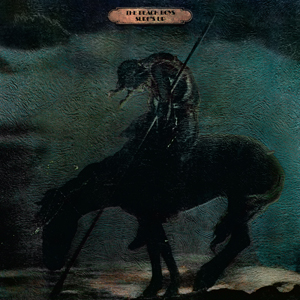
Surf's Up is the 17th studio album by American rock band the Beach Boys, released on August 30, 1971 on Brother/Reprise. It received largely favorable reviews and reached number 29 on the U.S. record charts, becoming their highest-charting LP of new music in the U.S. since 1967. In the UK, Surf's Up peaked at number 15, continuing a string of top 40 records that had not abated since 1965.
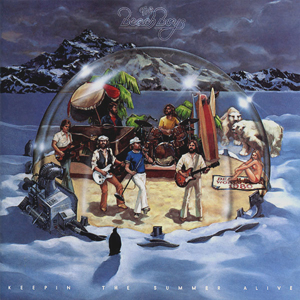
Keepin' the Summer Alive is the 24th studio album by American rock band the Beach Boys, released March 24, 1980, on Brother, Caribou and CBS Records. Produced by Bruce Johnston, the album peaked at number 75 in the US, during a chart stay of 6 weeks, and number 54 in the UK. It is the group's last album recorded with Dennis Wilson, who drowned in 1983, although he only appears on one song.
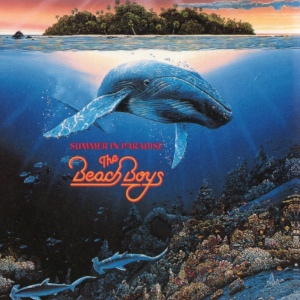
Summer in Paradise is the twenty-seventh studio album by American rock band the Beach Boys, released on August 3, 1992, by Brother Records. Produced by Terry Melcher, it is the only album not to feature any new contributions from Brian Wilson, and has been regarded as the band's critical and commercial low point, failing to chart in either the US or UK and receiving almost unanimously negative reviews. In North America, it was the group's first album to be released only on CD and cassette, with a rare vinyl pressing released only in South Korea. The Beach Boys did not record another album of predominately original material until That's Why God Made the Radio in 2012. Summer in Paradise was left out of Capitol's Beach Boys CD reissue campaign of 2000 to 2001, as well as all other reissues for most of the group's discography. Both it and its predecessor, Still Cruisin', are currently out of print. Summer in Paradise, along with Still Cruisin, were pulled from later re-releases due to poor public reception.

Endless Harmony Soundtrack is an anthology album of previously unheard material by The Beach Boys, originally released by Capitol Records in August 1998. Named for Bruce Johnston's song on the 1980 album Keepin' the Summer Alive, it was designed as a tie-in with the band's biographical documentary of the same name. The soundtrack was re-issued in March 2000 with some remixing and different artwork, while the original 1998 edition went out of print shortly thereafter.

"Forever" is a song by American rock band the Beach Boys from their 1970 album Sunflower. It was written by Dennis Wilson and Gregg Jakobson. Dennis sang lead vocal. His brother Brian assisted with the arrangement.

"This Whole World" is a song by American rock band the Beach Boys from their 1970 album Sunflower. Written by Brian Wilson, the song features his brother Carl on lead vocals and is credited as a Beach Boys production. Earlier in the year, it had been included on the Warner Brothers promotional sampler album The Big Ball, and as a single, fronted with "Slip On Through", but did not make the U.S. or UK pop charts.

"Cool, Cool Water" is a song by the American rock band the Beach Boys from their 1970 album Sunflower. It was written by Brian Wilson and Mike Love and later issued as an A-sided single in March 1971.
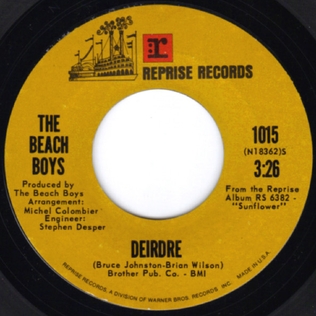
"Deirdre" is a song by the American rock band the Beach Boys from their 1970 album Sunflower. Written primarily by Bruce Johnston, it is a love song named after the sister of one of his ex-girlfriends, and is one of his two song contributions on the album, the other being "Tears in the Morning". Johnston has claimed that co-writer Brian Wilson's contributions were limited to a few lyrics, although music historians Andrew G. Doe and John Tobler wrote in 2004 that "Deirdre" had been "developed from a musical theme first used in 'We're Together Again,'" a 1968 composition credited to Brian Wilson and singer Ron Wilson.
"Our Sweet Love" is a song by the American rock band the Beach Boys from their 1970 album Sunflower. Written by Brian Wilson, Carl Wilson, and Al Jardine, "Our Sweet Love" features a lush sound that has been compared to the band's work on Pet Sounds. Brian Wilson originally left the song unfinished, resulting in the band completing it for Sunflower. Carl Wilson sings the song's lead vocal.
"All I Wanna Do" is a song by the American rock band the Beach Boys from their 1970 album Sunflower. Written by Brian Wilson and Mike Love, the dreamlike production quality was created through liberal use of overdubbing, reverb and delay effects. It was influential to the development of lo-fi music and pioneered sounds that became associated with the shoegaze, dream pop, and chillwave music genres.
"Let the Wind Blow" is a song by American rock band the Beach Boys from their 1967 album Wild Honey. Written by Mike Love and Brian Wilson, the song is a ballad with lyrics that metaphorically relate nature to the essence of love.
"Let Him Run Wild" is a song by the American rock band the Beach Boys from their 1965 album Summer Days . Written by Brian Wilson and Mike Love, it was issued as the B-side to "California Girls".
"Loop de Loop (Flip Flop Flyin' in an Aeroplane)" is a song by the American rock band the Beach Boys that was written by Al Jardine, Brian Wilson, and Carl Wilson. It was originally recorded between the late 1960s and 1970s. In 1998, Jardine finished the song for its release on Endless Harmony Soundtrack.
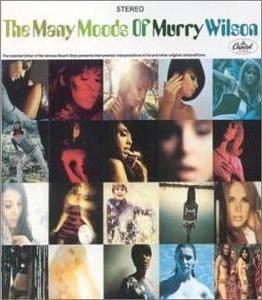
The Many Moods of Murry Wilson is the only studio album by American songwriter and talent manager Murry Wilson. The album was released on Capitol Records in October 1967, the same record label that the Beach Boys were contracted to at the time.

Lei'd in Hawaii is an unfinished live album by the American rock band the Beach Boys that was produced shortly after the completion of their 1967 studio album Smiley Smile. It was initially planned to include the band's first live concert performances since their tour of Europe in May 1967.
"Brian's Back" is a song by American rock band the Beach Boys that was recorded in two versions during the sessions for Love's unreleased solo album First Love and the Beach Boys' 1979 album L.A. . Written by Mike Love and produced by Paul Fauerso, the song addresses the "Brian Is Back!" media campaign from 1976. The players on the First Love version included Carl Wilson, Ron Altbach, Dave Somerville, and Jerry Donahue.
References
- ↑ Badman, Keith (2004). The Beach Boys: The Definitive Diary of America's Greatest Band, on Stage and in the Studio. Backbeat Books. p. 242. ISBN 978-0-87930-818-6.
- ↑ "Soulful Old Man Sunshine - the Beach Boys | AllMusic". AllMusic .
- 1 2 3 4 Doe, Andrew; Tobler, John (2004). Brian Wilson and the Beach Boys: The Complete Guide to Their Music . Omnibus. ISBN 9781844494262.
- ↑ Endless Harmony Soundtrack (Media notes).
- ↑ "Soulful Old Man Sunshine - the Beach Boys | AllMusic". AllMusic .
- ↑ "ACE Repertory". Archived from the original on 2017-02-06. Retrieved 2024-12-25.
- ↑ Various Artists: "In My Room"